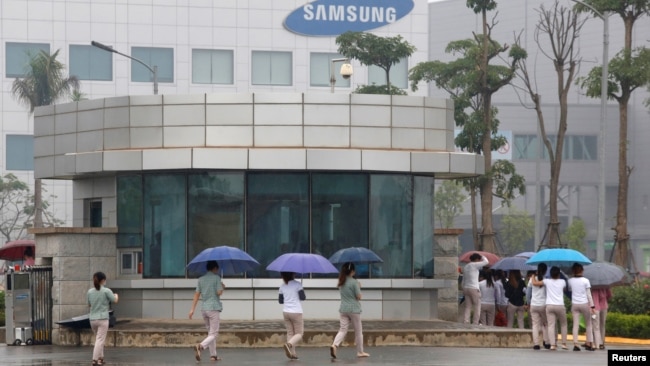国家体制が一番重要です!!
目先のコスト・市場規模だけで飛びつけば、どのような混乱が待ち受けているか、我々は見てきました。
世界全体が再構築される時期にきていると感じます。
密かに、静かに、しかし強かに、粘り強く。。。。。。
VOAで英語を学びましょう!!
パンデミック後のサプライチェーンで活躍する東南アジアと中南米(和訳)
Southeast Asia, Latin America Set to Gain in Post-Pandemic Supply Chains
June 28,2022
COVID-19の流行に関連した供給問題から、世界中の企業が多くの種類の商品の供給元を再検討しています。
多国籍の衣料品メーカーから電子機器メーカーに至るまで、多くの企業が中国からの脱却を目指し、輸入先を他国に検討しています。
中国はパンデミックによって大きな打撃を受け、政府は”ゼロコロナ”政策を打ち出しました。そのため、世界中のサプライチェーンで問題が広まりました。
専門家によると、東南アジアやラテンアメリカの国々が、必要とされる商品の新たな供給地となりつつあるということです。
ジャヤン・メノン氏は、シンガポールのISEAS-Yusof Ishak Institute's Regional Economic Studies Programの訪問代表です。彼はVOAに、パンデミック以来、世界の工場としての中国の伝統的な役割は縮小されるでしょう、と話します。アメリカやヨーロッパの多国籍企業は、部品や労働力、工場工程を別の場所に求めるようになるでしょう。
メノン氏は、「コロナの管理を誤る中国のような国は、大きな被害を受けることでしょう。」と述べています。それは、彼らの”コロナゼロ”の取り組みが、サプライチェーンに大きな問題を引き起こしているからだと言われています。
ベトナム、タイ、インドネシアなど東南アジアの国々がパンデミック規制を解除していたとき、中国は2つの主要都市でロックダウンを設定しました。このロックダウンは工場の受注に影響を与え、労働者不足を引き起こし、製品価格を上昇させました。
東南アジア
ベトナムやタイなどの国々は、2020年以前にすでに中国からビジネスを奪っていました。これは、中国とアメリカの貿易摩擦による中国の人件費上昇と増税が大きく関係しています。
メノン氏は、「東南アジアは明らかに、このように行われているすべての再構成の受益者になると私は思います 。」と言います。ベトナムをはじめ、タイやマレーシアといった国々は、"すでにサプライチェーンの再構築による利益を得ている "と述べています。
メノン氏は、ベトナムがリードしているのは、熟練した労働力、親ビジネスの改革、自由貿易協定のネットワークがあるためだと付け加えています。ベトナムにはサムスンやインテルといった電機メーカーが進出しており、外資系企業の自動車工場もあります。
ラジブ・ビスワス氏は、シンガポールのS&Pグローバル・マーケット・インテリジェンスのエコノミストです。同氏はVOAに対し、多国籍企業は複数の場所で産業能力、つまり生産能力を拡大する可能性が高いと話します。しかし、彼らは10億人を超える市場を持つ中国に留まることが予想されます。
ビスワス氏は、「彼らは中国での生産を続けるでしょうが、他の拠点に追加の生産能力を生み出すでしょう。」と言います。
中南米、特に産業の中心地であるメキシコでは、重要な米国市場に向けて製品が販売されています。メキシコは、ニアショアリング(近隣国へのアウトソーシング)と呼ばれるプロセスの恩恵を受け続けることが予想されます。これは、メキシコとアメリカは共通のタイムゾーンで、文化や言語も似ているため、米国企業にとって他の場所よりもビジネスがしやすいという考えに基づいています。
エヴァン・エリス氏は、米陸軍士官学校戦略研究所のラテンアメリカ研究教授です。ブラジルは、同国の天然資源を必要とする企業にとって、ビジネスを展開する場所として理にかなっていると、彼は言います。
エリス氏は、自動車を販売する企業にとっても、ブラジルは良い市場になり得ると言います。なぜなら、この国には2億1200万人の市場があり、その多くが中流階級の都市に住んでいるからです。しかし、エリス氏は、コストや現地の法律が、ブラジルへの投資家に困難をもたらすことがあると指摘しています。
Southeast Asia, Latin America Set to Gain in Post-Pandemic Supply Chains
Companies across the world are re-examining their sources for many kinds of goods because of supply issues linked to the COVID-19 pandemic.
Many businesses – from multinational clothing makers to electronics manufacturers – are considering other countries for imports as they move away from China.
China was hit hard by the pandemic and the government established a “zero-COVID” policy. This led to widespread problems in the worldwide supply chain.
Experts say that means countries in Southeast Asia and Latin America are becoming new go-to places for much-needed goods.
Jayant Menon is a visiting representative with the ISEAS-Yusof Ishak Institute’s Regional Economic Studies Program in Singapore. He told VOA that since the pandemic, China’s traditional role as the world’s factory will be reduced. American and European multinational companies will now be looking for parts, labor, and factory processes elsewhere.
Menon said, “Countries like China that mismanage COVID will suffer greatly.” He said that is because their “zero COVID” efforts have caused major problems for supply chains.
When Southeast Asian countries – including Vietnam, Thailand, and Indonesia – were lifting pandemic restrictions, China set lockdowns in two major cities. The lockdowns affected factory orders and caused worker shortages, which raised product prices.
Southeast Asia
Nations such as Vietnam and Thailand were already taking business from China before 2020. This was largely linked to rising Chinese labor costs and higher taxes that resulted from a trade dispute between China and the United States.
Menon said, “I think Southeast Asia will clearly be a beneficiary of all this reconfiguration taking place.” He said countries like Vietnam, and to a lesser degree Thailand and Malaysia, “have already seen gains from restructuring of supply chains.”
Menon added that Vietnam has a lead because of its skilled workforce, pro-business reforms, and a network of free trade agreements. Electronics companies Samsung and Intel both operate in Vietnam, as do foreign-invested car factories.
Rajiv Biswas is an economist with S&P Global Market Intelligence in Singapore. He told VOA that multinationals are likely to expand industrial abilities, or capacity, in multiple places. But, they are expected to stay in China for its market of a billion-plus people.
Biswas said, “They will still continue producing in China, but they will create additional production capacity in other hubs.”
Latin America
In Latin America, especially its industrial hub of Mexico, products have been selling to the all-important U.S. market. Mexico is expected to keep benefitting from a process called near-shoring. This is based on the idea that since Mexico and the U.S. have a common time zone and similar culture and languages, it is easier for American businesses to do business there than in other places.
Evan Ellis is a professor of Latin American studies at the U.S. Army War College Strategic Studies Institute. He said Brazil makes sense as a place to do business for companies in need of the country’s natural resources.
Ellis said Brazil can also be a good market for companies selling cars. This is because the country has a market of 212 million people, many of whom live in middle-class cities. Ellis noted, however, that costs and local laws can cause difficulties for investors in Brazil.
Words in This Story
source – n. where something comes from
supply chain – n. the systems and organization involved from manufacturing a product to providing it to a buyer
role – n. the job someone or something has in a particular situation
mismanage – v. to manage or control (something) badly
beneficiary – n. someone or something that benefits from something
configure – v. to arrange or prepare (something) so that it can be used
hub – n. the central and most active part or place
benefit – v. to be helped by something
